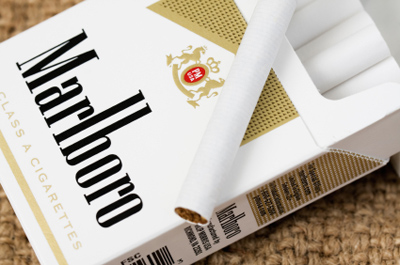Top Class Actions’s website and social media posts use affiliate links. If you make a purchase using such links, we may receive a commission, but it will not result in any additional charges to you. Please review our Affiliate Link Disclosure for more information.

In his Jan. 6 ruling, U.S. District Judge Derrick C. Watson said that he denied the plaintiffs’ motion to certify the proposed Class because they did not prove that all of the Class Members purchased the cigarettes for the same reasons nor did they have the same smoking habits, which also meant that their injuries were different. Therefore, the proposed class action lawsuit did not meet the predominance requirement to proceed as a group claim.
According to the federal statute that dictates what is required for a lawsuit to qualify as a class action lawsuit, “the predominance requirement is satisfied if ‘the questions of law or fact common to class members predominate over any questions affecting only individual members.'”
The law allows for some variation among the individual members, but in the case of the Marlboro Lights class action lawsuit, “the court concluded that common questions do not predominate over the individual inquiries into whether each class member was in fact injured by [Philip Morris’s] alleged misrepresentations.”
The class action lawsuit was filed by plaintiffs Bryan Cabbat, Brett Naokoaokalani Brookshire Prejean and Alex Reinprecht, who alleged that Philip Morris had “engaged in unfair and deceptive practices.”
They claimed in the Marlboro Lights class action lawsuit that this was done by “induc[ing] cigarette smokers to continue smoking in spite of the growing public awareness of a connection between cigarette smoking and serious health problems including cancer . . . by selling Marlboro Lights purporting to be ‘Light.'”
According to his decision to deny certification, Watson explains that the “plaintiffs allege that [Philip Morris] ‘intended to and did misrepresent that smokers of Marlboro Lights would receive less nicotine and tar, and a less harmful product, than smokers of regular cigarettes of the same brand’ . . . Consequently, plaintiffs allege that the purported class members ‘did not receive the product [Philip Morris] represented and the product they paid for—a healthier cigarette that contained less tar and nicotine than regular cigarettes of the same brand—when purchasing Marlboro Lights.'”
However, Watson said that the plaintiffs’ claim did not match up with the evidence. He cites the Supreme Court of New Hampshire, which wrote in 2012 that there was evidence available to smokers since 1976 that showed that light cigarettes were not any healthier than regular cigarettes.
“‘The record establishes that between 1976 and 1995, substantial information was available to consumers concerning the fact that light cigarettes are as harmful to smokers as regular cigarettes,'” the Granite State Supreme Court wrote. “‘Hundreds of publications and television news reports between 1976 and 1995 informed consumers that light cigarettes were no less harmful than regular cigarettes.”
The class action lawsuit was part of multidistrict litigation over Marlboro Lights that was underway in the federal court in Maine. It was remanded to the Hawaii court after four of the bellwether cases were denied class certification in the Maine court, which was upheld by the First Circuit appellate court. Most of the plaintiffs decided to drop their lawsuits at that time.
The plaintiffs are represented by Barnow and Associates PC, Barrett Law Group PA, Bickerton Lee Dang & Sullivan, Perkin & Faria, Whatley Kallas LLC, Becnel Law Firm LLC, Lanham Blackwell PA, Thrash Law Firm PA and Reed Gilmour Bowman.
The Marlboro Lights Class Action Lawsuit is Bryan Cabbat v. Philip Morris USA Inc., Case No. 1:10-cv-00162, in the U.S. District Court for the District of Hawaii.
ATTORNEY ADVERTISING
Top Class Actions is a Proud Member of the American Bar Association
LEGAL INFORMATION IS NOT LEGAL ADVICE
Top Class Actions Legal Statement
©2008 – 2024 Top Class Actions® LLC
Various Trademarks held by their respective owners
This website is not intended for viewing or usage by European Union citizens.














